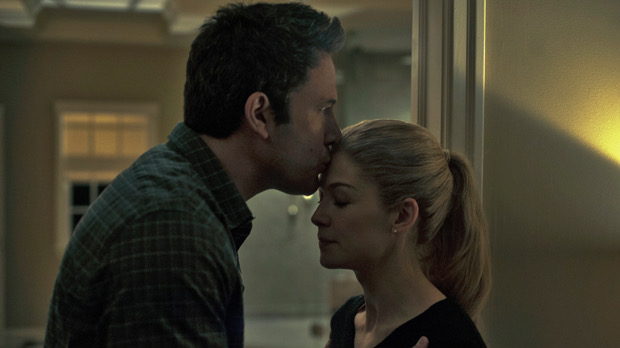A Summer Peach With a Worm at its Centre
By Meghan King | 14.02.2021
Le Bonheur. Dir. Agnès Varda. 1965.
I came upon the French New Wave, perhaps as many people have, while going down curious internet rabbit holes with a particularly teenaged hunger for novelty. Maybe I wasn’t looking closely enough, but at this first encounter, I never met Angès Varda. The usual figures did emerge, however—Godard, Truffaut, Rohmer, etc. I sought out Breathless and A Woman is a Woman because I thought the lead actresses were pretty. Though I enjoyed these movies I found them to be rather inscrutable, something I attributed to my own intellectual failings as a baby cinephile and modest idiot more than anything. I was readily seduced by their frank sexual politics and cliched tautologies (a woman is…a woman?), but on the whole there was an alienating quality to the experience of these movies. I didn’t see then what I can so plainly see now, that it was the implied yardstick of their heroine’s sexily petulant winsomeness was making me feel terrible. It’s nice to be a grown up and to see this all for what it really is (male fantasies, male fantasies…), but at the time of my girlhood I was out of my depth.
And then there was Varda. I can’t remember where along the way I first watched Le bonheur (1965)––though not my first Varda film, it is the one most indelible to me. This quick little film of 80 minutes plays like a feminist Grimms’ Fairy Tale, replete with whimsy and duplicitous idylls. It’s narrative is deceptively simple—a beautiful couple and their beautiful children live quietly in some beautiful French town where they indulge in all of the ease and pastoral bliss their lifestyle has to offer. He (François) is a carpenter; she (Thérèse) is a homemaker and dressmaker on the side. All’s quiet on the western front until the inevitability of another woman arrives.
Varda imagined the movie as “a summer peach with its perfect colours, and inside there is a worm,” it’s joy so aggressively conspicuous it scratches at the edges of suspicion. En français, le bonheur means happiness and when François buoyantly announces the fact of his affair, you don’t care to wonder if the happiness is mutual. To Thérèse he explains that he has so much joy to share that his affair takes nothing away from the love he has for her. Everything should be copacetic according to the tells of his disposition. By his own estimation this is understood to be completely normal. But how can this possibly be normal? The benefit of the doubt might want you to believe that the only explanation for his blind insensitivity is that François is plainly stupid. He is, but that’s not what this is about. The sexual politics of the 60s operated under the strange calculus that an expansive sexuality without accountability was the stuff of liberation, both for men and women. The frank ambiguity of New Wave dialogue and formalism belies the rhetorical machinations of this logic. Plain speak is deceitful when it comes from the mouth of an ill-intentioned man. As a woman you can be made to feel crazy by it.
Le Bonheur. Dir. Agnès Varda. 1965.
Le Bonheur exposes the fault lines of this logic. When François’s revelation lands on Thérèse, she bristles quietly for a moment then quickly folds into an embrace of her husband—of her anguish—ready to sublimate her happiness for her husband’s. Later, she’s found drowned in a nearby pond. A morally sating ending to a movie of this kind would conclude with a remorseful, contemplative François coming to terms with the demands of self-sacrifice levied upon his wife for the sake of son bonheur. This in and of itself would be tragic enough still, but this movie is not so much a tragedy as it is a horror story. The opening scene of the film has Thérèse and François with babies in tow lovingly romping about in a countryside scene of technicolour summertime, so cloying in its abundance of flora and l’amour. This is the same place where Thérèse will end her life in the nearby pond some 70 minutes later. It is also where come fall, François will bring his new bride, now a one-to-one surrogate for every role and function played by Thérèse while she was still alive—wife, mother, lover, and countryside wanderer. Fall’s coolness will mottle the psychedelic starbursts of Thérèse’s summer days into kindling earthen tones, but otherwise, all is exactly as before. François’ happiness may waver for a moment, but it never diminishes, his only need an amiable and pliant wife by his side, in his bed. Perhaps any might do.
Other readings of this film have attributed more ambiguity to it than I’ve assigned, but when I watched this movie all I could hear were alarm bells. Varda knows about marriage and what fetidness lies beneath its oft peddled fairy tale. Varda makes it known that as women we’ve been cut a bad deal. The brilliance of the film is not that it simply acknowledges this damning reality, however. Despite its doom Varda never abandons her character for pedantry or dogmatism, a trap so easy to fall into (I should take notes!). Her lifelong pursuits—of colour, of joy, of attention and complexity—remain intact. Le bonheur might be an adeptly told feminist nightmare, but its genius is that of Varda herself, a woman who imagined a summer peach with a worm at its centre and wanted to take a closer look.





